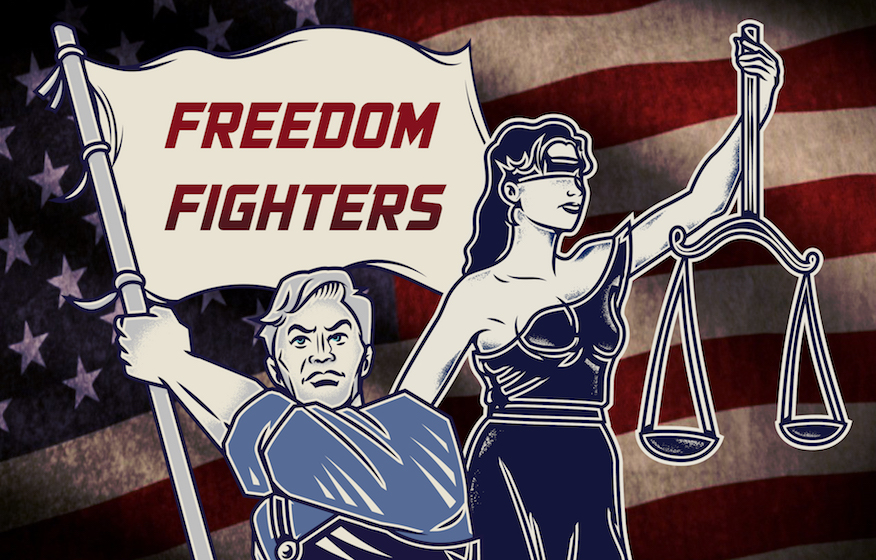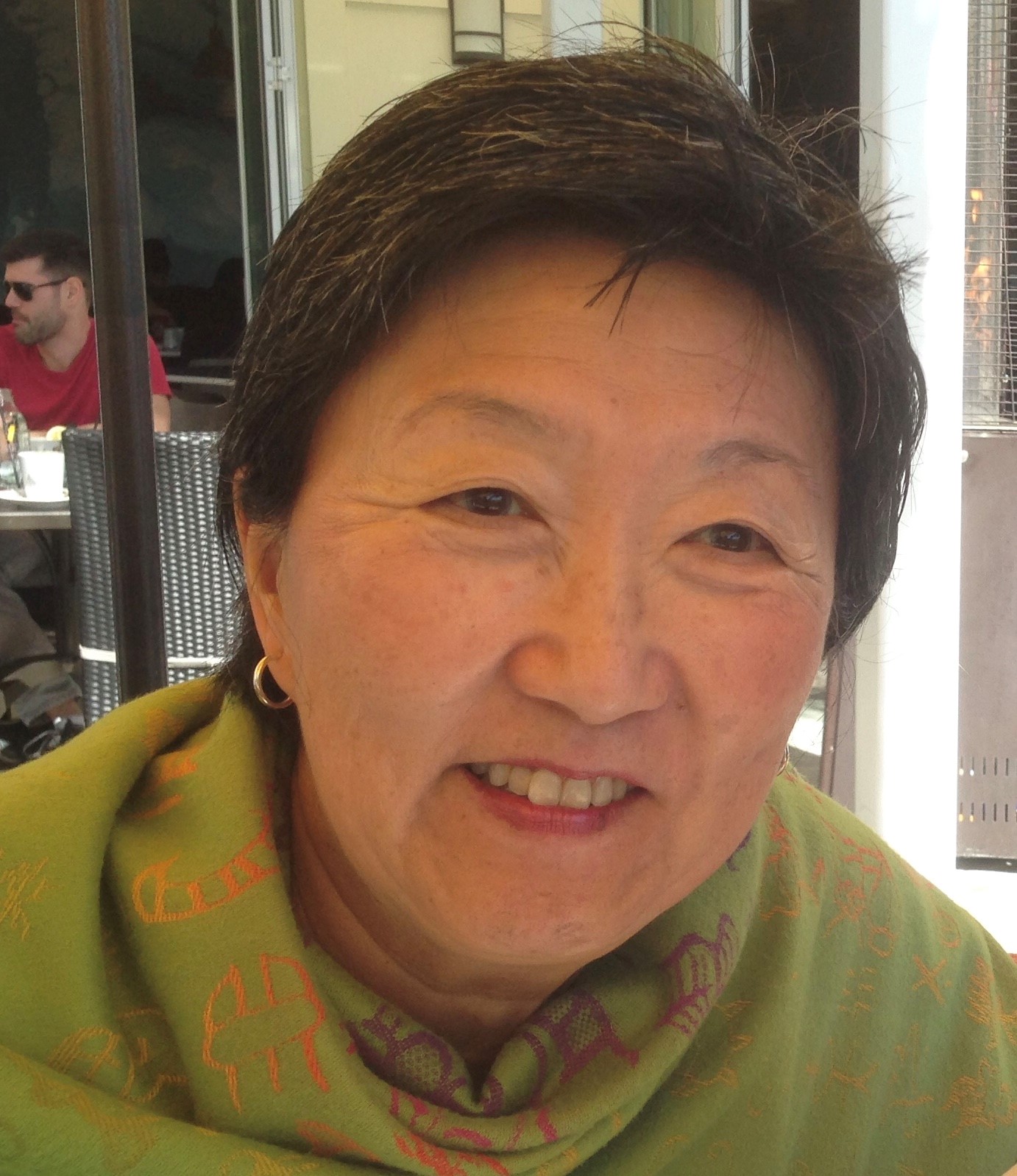Legal Freedom Fighter Series: Angela Oh and Asian Americans Advancing Justice

We’ve seen it repeatedly throughout our history: When people’s rights are threatened, it’s the lawyers who step up to the plate. Some are true Freedom Fighters, and they deserve special recognition. That’s why each month, we will feature lawyers who are really making a difference.
 Today, we are proud to feature Angela Oh.
Today, we are proud to feature Angela Oh.
Angela Oh is the senior attorney mediator for Asian Americans Advancing Justice and a nationally recognized expert on race relations. She was appointed by Bill Clinton to the President’s Initiative on Race to bring forth a public dialogue on race and race relations in America. Prior to that, she was a named partner in Oh and Barrera, LLP for a decade and had developed a state and federal criminal defense practice, including representation of juvenile offenders.
Her current interest is in mediating disputes that arise out of alleged violations of California’s civil rights laws. The cases she sees involve complaints about discrimination, harassment, hate crimes, denial of services and accommodations to persons who are in protected classes, including immigrants and people of diverse national origins.
Angela Oh is a native Angeleno, whose parents were among the earliest Korean immigrants to settle in Los Angeles.
Here’s the interview:
What was your most memorable case?
“My most intriguing case involved a double homicide in which my client was charged with matricide and sibling homicide. He was 17 at the time, and we did not have any option other than to try the matter. This was intriguing because of the fact that such homicides were rare, the client was so young, and there was absolutely no history of mental illness or drug use. However, there were deep cultural issues and transference issues (his father was physically abusive and the mother was a trigger for that abuse.) Our defense focused on mens rea, and the trial ended in a ‘win’ in that there was no finding of first degree homicide.”
What is the goal of Asian Americans Advancing Justice?
“Asian Americans Advancing Justice is a national civil rights voice for Asian Americans and it provides a point of entry into national policy making and politics for the diverse communities identified under the rubric ‘Asian American.’ The organization is led by individuals whose talents are very critical to maintaining an informative, engaged, and active Asian American presence in the national consciousness. There is a unique lens that is brought to all areas of policy work, including health, economy, higher education, civil rights, immigration, and administration of justice. Most importantly, what I know is that the core of people at Asian Americans Advancing Justice are very humble, determined, and committed individuals who see themselves working to better America, not just one segment of its population.”
What inspired you to become a lawyer in the first place?
“My interest in labor and health issues. My training had been in public health, and my engagement around environmental health was piqued when I was working with a labor organization that focused on health concerns related to high-risk occupations (ones that could trigger irreversible diseases when workers inhaled, absorbed, or ingested toxins as they performed their jobs.) I was inspired to link the work environment and the community environment in advocacy around ‘right to know’ policies that were being advanced while I was studying public health. My first job out of graduate school was with a labor organization in Sacramento that had won a federal grant to train workers about the health hazards that were invisible but highly toxic causing disease outcomes such as cancer, reproductive health problems, respiratory problems, and other disorders that could take years to manifest in a worker’s body.”
From an equal rights and racial justice perceptive, where do we stand today compared to previous years and decades?
“We are at a cross-roads. The knowledge and experience with where the structural and institutional biases exist is readily available; we are in conflict as a society over what steps can and should be taken in light of our commitment to the financial and political framework we have today. Poor people are being sacrificed as are immigrants and other segments of society that are vulnerable because of historic bigotry and violence mis-directed from problems with money and corruption that taints politics, business, and the ability for individuals to participate in a democracy.
The complexities have grown because the advances in technology, telecommunications, travel—all make it very possible for local conflict to become international conflict. This has affected the domestic lens when it comes to equal rights and racial justice. For Asian Americans, the experience of having been rejected and then accepted (often depending on domestic economic health), of being perceived as both model and inscrutable, of having a wide range of diversity within what is called Asian American has contributed to creating unique challenges when it comes to a narrative about equal rights and racial justice.
Within this population, there are clear examples of deep divides that are unique due to the presence of communities with no common language (unlike Latin-x communities), no common history (indeed, often at odds in native lands), no common migration story (range of stories go from farm/plantation labor to extreme capitalist investors) and no common experience or touchstone in the U.S. (Chinese felt exclusion acts, Japanese felt incarceration, Koreans felt urban unrest, for example).
Today, there is more cohesion as Asian Americans in the current generation understand a collective history in the U.S., have engaged in all levels of political expression, and have become conscious of Asia’s rising world influence. These are a few key dynamics that have caused Asian Americans to see that the political construct created to put the diversity of Asia under a single rubric in the U.S. can be leveraged to advance justice and decency.”
What challenges do you face today that you never encountered before?
“Today, the challenge is to stay engaged in a meaningful way to support the next generation of lawyers who appreciate the deep connections between and among those whose families migrated to this country. To support those who want to pursue the vision of equality, dignity, and opportunity that is promised by the nation and to provide insight into the justice system, which is a key institution that is meant to provide a means for this pursuit.”
You’ve had so many successes. Which one stands out the most for you?
“In the realm of politics, it’s starting the conversation on a national level with the White House on race and racism and its effects on this society. The experience of engaging, opening this conversation, and meeting so many incredible people across the country who are dedicated to building understanding and expanding opportunities to learn from one another was an experience that counted for me as a personal success.”
If you could give one piece of advice to other lawyers across the country, what would you say?
“Include in your daily routine, a moment (or several moments) to see something beautiful in your world. Don’t miss the opportunity to contribute something beautiful as well.”
If an attorney wants to get involved in social justice, how can they get started?
“Contact Asian Americans Advancing Justice or any other organization in your local community that is involved in serving the community. Show up at the next opportunity and learn.”
Share post:







